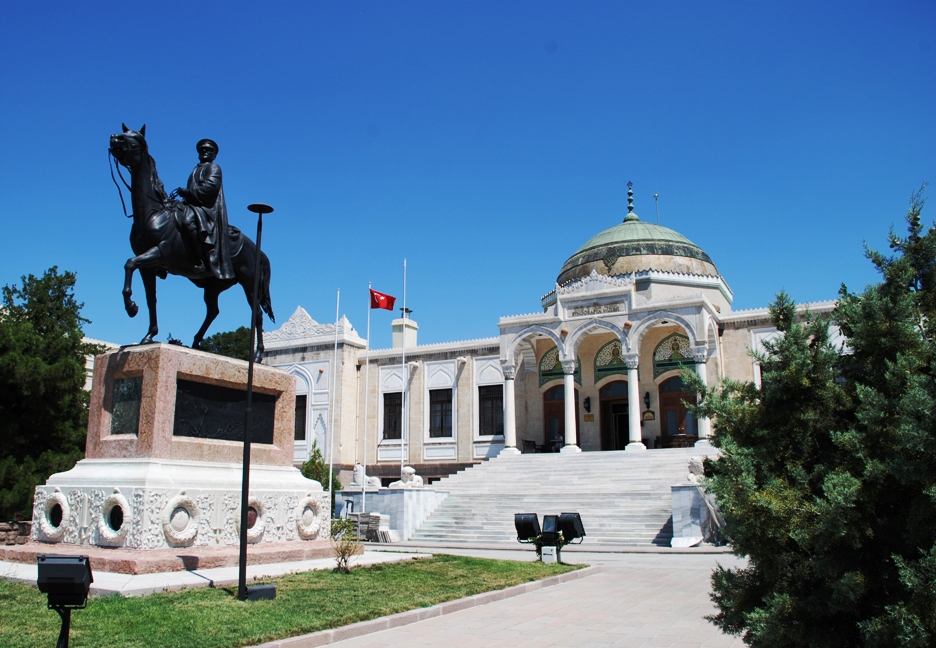Establishing a new capital city is one of the most important decisions a nation can make. For Turkey, the choice to move the capital from Istanbul to Ankara after World War 1 held major strategic, political and symbolic significance. This decision shaped the future of the young Turkish Republic in many ways. But why did Turkey’s founding father Mustafa Kemal Atatürk select Ankara over Istanbul as the nation’s new capital city? This article explores the key reasons behind Atatürk’s pivotal choice.
Strategic Location for Independence Struggles
As World War 1 drew to a close in 1918, the Ottoman Empire signed an armistice agreeing to Allied occupation and division of its territory. In the following years, Turkey fought to maintain its independence from invading foreign powers. When Mustafa Kemal Atatürk began organizing the Turkish national resistance movement in 1919, a strategic base was needed. Ankara was ideally situated in the center of the Anatolian peninsula, allowing for easier communication and supply lines across the region during the upcoming Turkish War of Independence. Located further inland than other major cities, Ankara was also less accessible to foreign occupation forces operating from the country’s peripheries. Its central Anatolian location proved vital for directing Turkey’s autonomy struggles against multiple external threats.

Hub for National Organization and Mobilization
From its earliest days of resistance, Ankara served as the headquarters and coordination hub for Turkey’s independence efforts. The first Grand National Assembly convened there in 1920 to govern areas out of Allied control. Organizing the national movement from Ankara allowed for greater mobilization of resources and manpower across Anatolia against invading forces. Key infrastructure like telegraph lines improving connectivity also benefited operations led from the city. As a result, Ankara gained national symbolic importance as the base enabling Turkey’s self-determination during a challenging period. Housing the fledgling nation’s political and military leadership reinforced its status as the legitimate center of the emerging Turkish state.
Safe from Foreign Occupation
While major coastal cities like Istanbul faced occupation after World War 1, Ankara remained securely in Turkish hands throughout the independence struggle. Never having been invaded before, the city lacked the security risks posed by recently occupied areas. Sheltered deep in Anatolia’s heartland, it proved strategically difficult for foreign powers to threaten or control. Ankara’s inland location proved a major asset, allowing Turkey’s government and resistance forces to safely direct operations away from the frontlines. Not being under foreign military control or influence as the capital further strengthened the legitimacy and sovereignty of the new republic emerging from the independence movement.
Facilitating Central Governance
Once elected president in 1923, Atatürk chose to formally relocate Turkey’s political capital from Istanbul to Ankara. The reasoning behind this transformative decision built upon earlier strategic advantages. From Ankara, the new Turkish state could more effectively administer a vast country still engaged in establishing central rule. The city’s central Anatolian location minimized travel distances to all regions, facilitating governance and nation-building. Key infrastructure connections like Ankara’s transport and communication hubs established it as the optimal center for organizing a unified national administration. Locating the republic’s leadership there on a permanent basis strengthened sovereignty claims over former Ottoman lands and deterred any revived territorial ambitions from enemies.
Break from Ottoman Legacy
While Istanbul was firmly associated with the recently defeated Ottoman Empire, Ankara held no such imperial legacy or identity. Establishing the nascent Turkish Republic’s capital there represented a decisive break from Turkey’s Ottoman past. It symbolized the new nation emerging independent from the former empire rather than continuing its existence. Ankara came to represent Atatürk’s transformative republican vision of modernizing Turkey as a distinctly national Turkish state. Removing the capital from Istanbul reinforced that the republic would not be a resurrection of the defunct Ottoman system. It helped consolidate Atatürk’s republican revolution and distance the new Turkey from its pre-World War 1 imperial heritage.
Modern Capital for a Modern Nation
In choosing Ankara, Atatürk sought to purposefully craft it as the fitting capital of a new modern nation. He embarked on extensive urban development projects that transformed Ankara into a symbol of Turkey’s Western-oriented reforms. Inspired by contemporary European urban planning ideals, Atatürk created a dynamic model metropolis befitting an ambitious republic. Ankara’s new architecture, infrastructure and institutions embodied Atatürk’s vision of accelerated modernization for Turkey. Its designation as capitalcity aligned the young nation’s physical and ideological center, projecting an image of progress, national unity and territorial sovereignty to both citizens and the international community. Ankara’s rise reflected Atatürk’s goals of building a secular, democratic Turkey positioned as a equal member of the modern world.
In conclusion, Atatürk’s selection of Ankara as the Turkish Republic’s permanent capital was driven by strategic, political and symbolic considerations central to establishing an independent Turkish nation-state. Its ideal location, absence of foreign entanglements, and potential to embody Atatürk’s revolutionary agenda converged to make Ankara the logical choice over Istanbul. The founding of Ankara as Turkey’s capital city formed a defining part of Atatürk’s transformative nation-building project and legacy. Its role helped ensure Turkey’s territorial integrity, national sovereignty and place among modern democratic nations of the 20th century.

 Living as a Uyghur Student in China
Living as a Uyghur Student in China